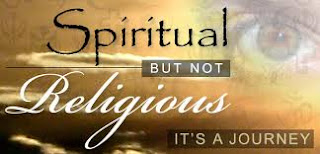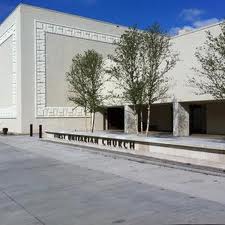Unitarian College Manchester recently asked me to answer the following question, in just a couple of sentences.
“What aspect(s) of your training or time at UCM has made the most significant or positive contribution to your work as a Unitarian minister?”
A difficult question and this is what I finally came up with.
“For me it has been about finding and refinding my voice. This happened throughout my training, where I continually found myself forming and reforming, while discovering ways to articulate this. This was difficult at times, but I know it has shaped me for the better."
“For me it has been about finding and refinding my voice. This happened throughout my training, where I continually found myself forming and reforming, while discovering ways to articulate this. This was difficult at times, but I know it has shaped me for the better."
My journey into ministry has been about finding and refinding my voice.
I now look back fondly on my early days of training, but at the time it was a struggle. I was thrown into several unfamiliar environments, while at the same time I had lost the security of my home congregation at Cross Street. The first few months were very painful as I struggled with my identity. I felt quite exposed and vulnerable at times. Everything I said and did seemed to be under scrutiny. It was tough, but then again so it should be. Thank God for prayer. It held me and it sustained me throughout this period, has it has for many years.
I had to go through this in order to discover and rediscover who I was. I had to examine and re-examine my faith and learn to articulate it. I also had to really listen to what others were saying, to know where they were coming from, to respect them as they were and to learn how to communicate with them. I had to find ways to walk in their shoes, while still remaining true to me.
The first few months were the most challenging, but by the Christmas of my first year things began to change. I found my voice. I was able to be myself and was able to begin to communicate this to others with more confidence. I felt increasingly at ease and less nervous and was able to speak my truth in love. I became less defensive and precious about my personal religious convictions. Put simply I began to loosen up. I found my voice.
The ability to speak publically is a vital tool of ministry, so if a minister loses their voice or ability to speak their effectiveness would be seriously compromised. Well just this did happen to one of the two father’s of British Unitarianism, Joseph Priestley. For many years Dr Priestley struggled with a stammer.
I have a personal affection for Priestley, which has nothing much to do with his actual achievements. No I have affection for Priestley because he comes from Birstall, in West Yorkshire, where I grew up and he attended Batley Grammar School, where I went. There the comparisons end I’m afraid. I have never been a leading radical, politically and I have never been particularly scientifically minded.
The stammer has been brought into the public consciousness in recent times, due to the success of “The Kings Speech.” During the film King George VI struggles to overcome his stammer, with the help of a highly unconventional speech therapist. The treatment began long before he became King. In fact he was never expected to become the King at all. He never sought the limelight. He had little self confidence and no doubt his stammer contributed greatly to this. I am sure he would have been happy living the quiet life with his wife and two daughters. This though was not meant to be, as life events dictated otherwise, as they so often do. Following the death of his father and the abdication of his brother he was thrown into the limelight and into a position that did not suit this quiet reserved individual.
The film portrayed how he came to terms with himself and his new life. He found his voice. It spoke powerfully to me in this respect as well as in the sense that it beautifully portrayed how we humans can overcome obstacles with courage and faith and the right kind of guidance.
Dr Priestley struggled with a stammer for years. It must have been terribly difficult to preach with such an impediment. Like the king he did overcome it as it did not affect his later career. That said it did cause him much distress although, as he said, it saved him from being “seduced by the love of popular applause as a preacher”
My tradition lays great emphasis on the word and the preaching of it. Ok today we may not place authority at the door of scripture, this has been replaced by the conscience of the individual. That said the preached word, articulated correctly is still central to our worship.
Is this though the most important element?
Many people can speak well and articulately. I myself have had some training, but I know I will never be perfect and absolutely clear. I do not wish to be. I need to remain true to who I am, to speak my truth in love and in a language that hopefully others will understand.
To truly minister people need to hear what my heart and soul has to say. I need to speak the language of the heart, but not from someone else’s book of life and experiences. No! These experiences must come from my own; otherwise how can I expect others to relate to what I have to say.
I hope that by continually finding my voice I am able to encourage others to do likewise and that they in turn continue to speak their truth in love.
Isn’t that what ministry is all about?




































